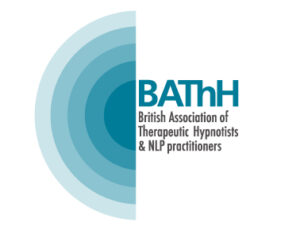Deep Relaxation
Deep relaxation is a state in which the body and mind experience a profound sense of calm and restfulness. Achieving deep relaxation can have several physiological, psychological, and neurological effects. Here's a detailed explanation of what happens:
1. Physiological Effects
When you enter a state of deep relaxation, your body undergoes various physiological changes that promote a state of rest and recovery:
-
Reduction in Heart Rate: The parasympathetic nervous system (PNS), often referred to as the "rest and digest" system, becomes activated. This leads to a slowing of the heart rate, which helps the body conserve energy and reduce stress on the cardiovascular system.
-
Lower Blood Pressure: Along with a slower heart rate, blood vessels dilate, allowing blood to flow more freely and reducing overall blood pressure. This relaxation response counters the effects of the sympathetic nervous system (SNS), which is responsible for the "fight or flight" response.
-
Decreased Muscle Tension: Deep relaxation causes the muscles throughout the body to release tension. This is often felt as a sense of heaviness or a warm, loose sensation in the limbs.
-
Improved Breathing: Relaxation encourages slower, deeper breaths. Deep breathing increases oxygen intake, helping to nourish tissues and improve the function of vital organs, particularly the brain. The practice of deep diaphragmatic breathing is also linked to stimulating the vagus nerve, which further supports the activation of the PNS.
-
Reduction in Stress Hormones: Levels of stress hormones like cortisol and adrenaline typically decrease. These hormones are associated with the body's fight-or-flight response, and their reduction helps promote a sense of calm and well-being.
-
Activation of the Immune System: When the body is relaxed, it can focus more energy on healing and recovery. Studies have shown that deep relaxation can enhance immune function, allowing the body to produce more white blood cells and antibodies, which help fight infection and disease.
2. Neurological Effects
Deep relaxation also has significant effects on the brain:
-
Changes in Brainwave Patterns: In a relaxed state, brainwave activity often shifts from the fast-paced beta waves associated with alertness and activity to slower alpha waves, which are connected to a state of calm and focus. In even deeper relaxation, the brain may transition into theta waves, which are associated with deep meditation, creativity, and enhanced learning. In this state, the mind becomes more receptive, and a sense of timelessness and deep inner peace can emerge.
-
Increased Production of Neurotransmitters: Relaxation can boost the production of neurotransmitters like serotonin and dopamine, which are associated with feelings of pleasure, contentment, and well-being. It can also reduce levels of neurotransmitters associated with anxiety and stress, such as norepinephrine.
-
Stimulation of the Prefrontal Cortex: The prefrontal cortex, which is responsible for higher-order thinking, problem-solving, and emotional regulation, becomes more active during states of deep relaxation. This allows for greater clarity of thought and emotional stability.
3. Psychological Effects
Deep relaxation has numerous psychological benefits that contribute to overall mental well-being:
-
Reduction of Anxiety and Stress: As the body and mind relax, the sensations and thought patterns associated with anxiety and stress often diminish. This can create a sense of emotional release and relief, promoting a more balanced and calm state of mind.
-
Increased Mindfulness and Awareness: Deep relaxation often involves focusing on the present moment and letting go of distractions and worries. This practice, similar to mindfulness, enhances awareness and allows the individual to be more in tune with their thoughts, emotions, and physical sensations without judgment.
-
Enhanced Emotional Stability: By reducing the intensity of the body's stress response, deep relaxation helps to stabilize emotions. This can make it easier to manage negative feelings like anger, sadness, or fear, promoting a more balanced emotional state.
-
Improved Sleep Quality: Deep relaxation techniques are often used to promote restful sleep. By calming the nervous system and slowing down brainwave activity, the body is better prepared for the transition to sleep, which can result in more restful and restorative sleep cycles.
-
Access to the Subconscious Mind: In a deeply relaxed state, the mind is more open to accessing the subconscious. This is why relaxation techniques are frequently used in hypnosis and hypnotherapy. It allows for reprogramming limiting beliefs, uncovering subconscious thoughts, and facilitating personal growth or behavior change.
4. Long-term Benefits of Deep Relaxation
Regular practice of deep relaxation can lead to several long-term benefits, including:
-
Improved Mental Clarity and Focus: Over time, the practice of deep relaxation can improve concentration and cognitive performance by reducing mental clutter and enhancing the brain's ability to process information efficiently.
-
Enhanced Emotional Resilience: By regularly entering a state of relaxation, individuals can build resilience against stressors, as their baseline level of anxiety decreases. They also become more adept at returning to a state of calm when confronted with stress.
-
Reduced Risk of Chronic Health Conditions: Chronic stress is a contributing factor to many health issues such as hypertension, cardiovascular disease, and immune disorders. Deep relaxation, by reducing stress levels, may help lower the risk of developing these conditions.
-
Greater Sense of Well-being: Practicing deep relaxation consistently can increase overall life satisfaction. This comes from a combination of improved physical health, greater emotional balance, and a more positive outlook.
Book in for your Deep Relaxation session here
- Hits: 1150





 25% discount for Key Workers (Police, Fire, NHS)
25% discount for Key Workers (Police, Fire, NHS)